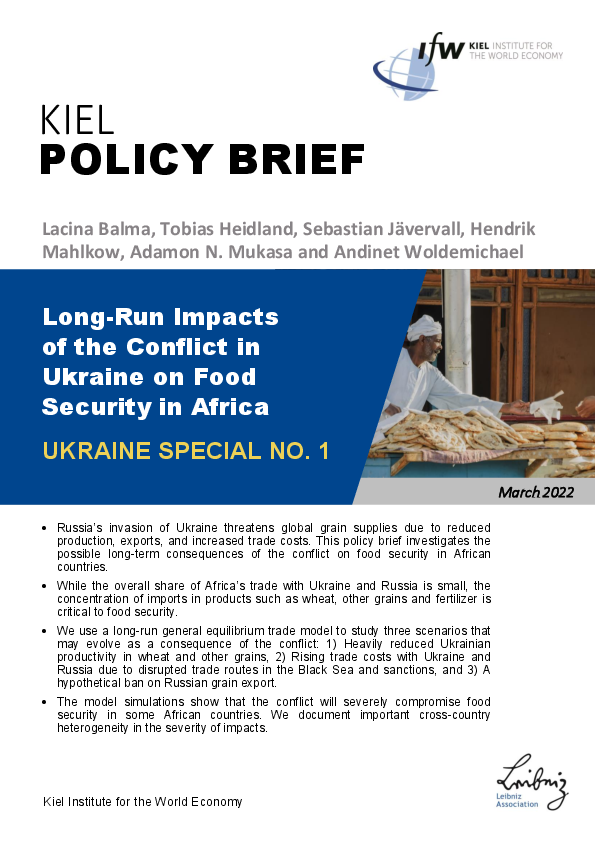Policy Article
Long-Run Impacts of the Conflict in Ukraine on Food Security in Africa
Authors
Publication Date
Key Words
Related Topics
War
Africa
Russia
Economic & Financial Crises
Globalization
International Trade
Ukraine
Many African countries heavily rely on imports of agricultural commodities and agricultural inputs from Ukraine and Russia, for example wheat, other grains, and fertilizer. Russia’s invasion of Ukraine has disrupted global access to grains due to reduced production, exports, and increased trade costs. This policy brief investigates the possible long-term consequences of the conflict on food security in Africa. We use a long-run general equilibrium trade model and study three scenarios that may evolve as a consequence of the conflict: 1) Ending exports of Ukrainian wheat and other cereals for food production, such as corn or sorghum. 2) Russia's potential ban on exports of grains and fertilizers, and 3) The impact of increased trade costs due to disrupted trade routes in the Black Sea. The model simulations show the conflict will severely compromise food security in Africa. We document important cross-country heterogeneity in the severity of impacts.









